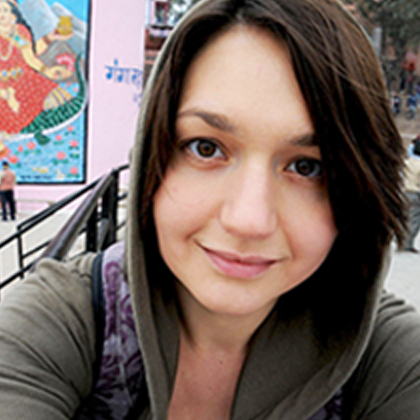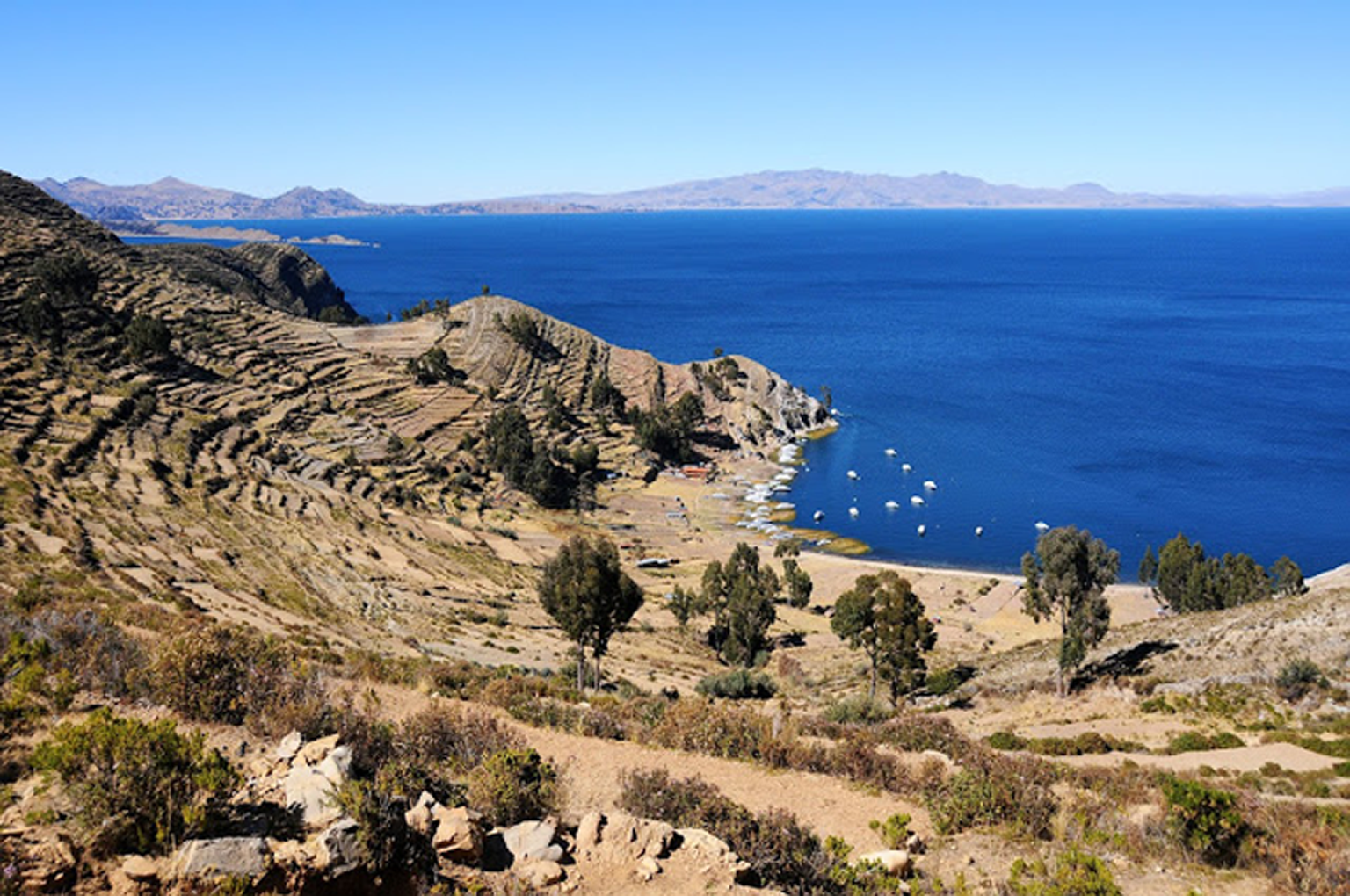- Posted by:
- anjci
- Under:
- Eurovision
Priding itself on Scandinavian organisation and quality, Denmark certainly did not disappoint as a host nation. Perhaps the night’s only downer was that, for the first time in the Eurovision history, the show was led by as many as three presenters, two men and a woman. Some had hoped that Sweden’s 2013 introduction of a single presenter would become norm to counterweigh the usual mixed gender duo set-up. I did not find three presenters remotely necessary on the night; less relevantly, I also found the two males’ facial hair rather, erm, in your face (if ever so ubiquitous in Denmark) – but, as we will see further below, facial hair seemed to be the main theme of this year’s contest.
The outcome of the contest was clear to many before the show had even started. Conchita Wurst, famously a man-turned-lady representing Austria, flew home triumphant. Her James Bond-esque Rise Like a Phoenix impressed many and won Austria its second ever Eurovision victory; the country had last won the contest in 1966. And the powerful ballad was decidedly outshone by its performer: Conchita, also known as Tom Neuwirth, sported a long golden gown, gorgeous dark locks, a tiny waist, metre-long eyelashes and, well, a beard. But she took Europe by storm, collecting a total of 290 points, which included 13 “douze-points” awards. The runner-up, the Netherlands’ Calm After the Storm by The Common Linnets, fell short by a few dozen points and finished with 238 while Sweden’s Sanna Nielsen with Undo came third with 218.
Unsurprisingly, this year’s contest did not pass without controversy. Final national points are determined by a combination of local jury and public votes which sometimes differ dramatically. This year’s main victim of the jury vote was Poland. Widely favoured by the public, it left many juries across Europe unmoved (or too embarrassed to admit they actually were) and finished 14th – solely counting the public vote, however, it would have easily made the Top 5.
Same old, same old
The 2014 contest sadly saw continued absences by a number of formerly active Eurovision countries. Turkey re-iterated its dissatisfaction with the incorporation of a jury into each country’s national vote and went missing for the second consecutive year. More noticeably, three Balkan nations – Bosnia & Herzegovina, Croatia and Serbia – all cited financial difficulties and either withdrew at the last minute or failed to register at all. I suspect however that the real reason for their absence was not being able to divide up Zeljko Joksimovic, the local Eurovision guru. Overall, 37 countries took part in the contest, the lowest number in the last decade.
The contest brought us some familiar faces on the stage with, most famously, Valentina Monetta yet again representing San Marino. The established singer thus became the fourth ever Eurovision artist to contest the title for the same country in three consecutive years (the last time this happened was back in the swinging 1960s). In one of Eurovision’s most emotional moments this year, Valentina Monetta tearfully celebrated qualifying for the finals, the first ever such achievement for the micro state. Another returning act were Paula Seling and Ovi, who last represented Romania in 2010; their energetic Miracle danced its way elegantly into the finals.
Je ne comprends pas
Abandoning 2013’s momentary preference for national languages (in which over a half of all songs were performed last year), this year’s contest regrettably saw only five non-anglophone participants singing in local languages while a further five mixed theirs with English. By the night of the grand final, the number of songs sung entirely in local languages had dropped to three.
One certainly cannot blame the United Kingdom or Ireland for performing in English (being able to sing is a bonus enough there), but even the usually ardent local language proponents like Macedonia and Moldova opted for more widely understood lyrics this year. And, utterly unsurprisingly, three usual suspects among the Big Five automatic qualifiers – France, Italy and Spain – remained firmly pro-local in their language choices (Ruth Lorenzo of Spain alternated English and Spanish verses), though I suspect France’s chief reason for this was to keep the rest of Europe using French when announcing their results.
So political, are we
After last year’s notable absence of the former Yugoslavia in the finals, this year we were blessed (or cursed, depending on how you look at it) with two, Montenegro’s Sergej Cetkovic and Slovenia’s Tinkara Kovac. Montenegro’s first ever success to qualify for the finals was somewhat dampened by the lack of support from beyond its immediate neighbours: it finished 19th, with Slovenia infamously coming second last.
Political considerations could not have been more obvious than in the case of Russia. Its identical twin act Tolmachevy Sisters came 7th but faced widespread booing whenever the 17-year-olds came on stage or received points. Recently split with Europe on the question of the Crimean peninsula, Russia also saw notably fewer votes than in 2013: only 14 countries voted for Russia this year, dropped by nearly a half since last year. Also, none of the larger EU countries gave it any points.
With fewer participating countries against a backdrop of a complicated political environment, the Eurovision saw only one mutual award of the coveted “douze-points”: by Russia and Belarus, whose love for each other seems to have remained strong despite the surrounding difficulties. I was also touched to see Georgia bestow Armenia with a 12, while Moldova lavished Romania with points, Macedonia bowed to Montenegro and Denmark remained loyal to Sweden. To everybody’s relief, Eurovision continues to value good neighbour relations as much as – or perhaps even higher than – the music.
…and some nominations
Continuing the tradition of applauding Eurovision artists on criteria of varying relevance to music, I will give my best outfit award to – you have guessed it – Poland. The country’s female representative Cleo stirred up a storm with her low-cut version of an ethnic embroidered dress and provocative dancing. Surrounded by similarly clad Polish ladies suggestively performing mundane country chores like washing clothes and churning butter – lip biting included – Cleo paraded her ethnic background with the aptly named We Are Slavic. Never more proud of my Slavic blood, I may soon be asking Cleo where she got her wonderful dress from.
With so many songs badly translated into English from their local originals, the performance featured heart-warmingly many awful lyrics. I had a hard time deciding, but my worst lyric award goes to the painful rhymes from Ukraine. Seriously, “Tick-tock, can you hear me go tick-tock / My heart is like a clock, I’m steady like a rock” are not the lines you want to have stuck in your head for ages. Unless you are actually trying to go tick-tock, of course.
The best lyric was even harder to decide. Among dozens of well-deserving gems, I was close to splitting the award between Belarus’ Teo and France’s TWIN TWIN. I am sure Teo touched many a heart with a no-nonsense confession of “I am no Patrick Swayze” in his phlegmatic Cheesecake. However it is TWIN TWIN of France that finally had the scales tip in their favour with the single English line from their otherwise francophone entry, Moustache. “I want to have a moustache” by three shaven men is indeed tear-provoking given that their fellow performer on the stage – a drag queen – had visibly managed to grow a full beard without singing much about it.
Moving on to the award for the best country postcard, I cannot help praising Georgia. In short clips between songs, each participating country was tasked to present its flag in a creative way. While the Albanian singer painfully pretended to have a black eagle tattooed on her back, Georgia won me over by building St. George’s cross from glasses filled with red wine. I am only sorry I wasn’t there to help with drinking them up afterwards.
The best national results’ presenter is unquestionably awarded to Austria whose Kati Bellowitsch, in wonderful solidarity with Austria’s entry, sported a beard to complement her lovely long locks. Beards apparently became a bit of a fetish at the 2014 Eurovision, with many in the audience donning knitted, woven and folded beards in preparation for the big night. There is talk of Conchita hosting the event in Austria next year – whether true or not, one thing is clear: whoever presents that show will have a beard.
Finally, many acts surprisingly featured solo supporting performers to complement the lead singer. Ukraine presented a man in a hamster wheel (poor chap must have been exhausted at the end of the song), Montenegro gave us a ballerina swirling away on the stage and Azerbaijan – a trapeze artist. All three qualified to the finals, but my award for the worst solo supporting act goes to the song that did not make it past the semis. Enter Belgium’s Alex Hirsoux – while some viewers cheekily suggested that the somewhat large singer join the Ukrainian man in the hamster wheel, I was too mesmerised looking at the distressed woman grimacing behind the Belgian act and clearly impersonating his Mother. My sincere hope is that she wasn’t.
A few last words
Other moments included Armenia’s Aram MP3 whose much trumpeted Not Alone forgot to consciously uncouple from its Coldplay-esque sound; Iceland’s Pollapönk whose colourful outfits made the quartet look like the punked-up Wiggles; Greece’s Freaky Fortune for being the country’s most forgettable Eurovision act in decades and Finland’s Softengine for being in most touch with local tradition by allegedly writing their Something Better in a sauna. I wonder if it was the reason the song had such a refreshing sound to it, too.
And what about the United Kingdom? After Engelbert Humperdinck and Bonnie Tyler in the last two years, I was relieved to see the country finally reduce its minimum participant age. Molly, from Leicester, may have put her soul into the inspiring Children of the Universe but Europe was not impressed, ranking the UK 17th. Many blamed the UK’s last performing slot on the night, but I’d stop looking for excuses – the Netherlands’ third last slot nearly scored them victory – and focus on the music instead.
And don’t forget to wear your beards in Vienna next year, folks.












Giannina says:
August 10, 2018 at 4:55 pm
No please! I hated that performance. So sad to use women like an object and in particular from a country where it used to exist an awful sexual tourism…
anjci says:
August 10, 2018 at 7:49 pm
I found it hilarious. Sometimes it is healthy to embrace the silliest of stereotypes!
Giannina says:
August 9, 2018 at 8:48 pm
This year my favorite was Sanna Nielsen, Sweden with Undo.
anjci says:
August 10, 2018 at 10:49 am
Having looked through the list of finalists for 2014, I am not surprised that I found the Polish entry by far the most memorable… hahaha : ) That butter churning routine turned some… heads : )
anjci says:
October 10, 2014 at 9:53 am
The email should work, do feel free to send one! Money-wise, I have a permanent job in the financial sector in the City, which is acceptably well paid. I use my holiday allowance to travel. It probably helps that I do nto yet have children. My demands on the road are quite modest, though I'd be seen dead sleeping in hostels – I am simply too old for that now : ) Travel does not need to be expensive at all.
Anonymous says:
September 17, 2014 at 2:34 pm
Hello! I tried sending you an email, but something is not quite right, so I'll just ask my question here 🙂
How do you manage (money-wise) to afford all these travels? I'm only asking from pure curiosity and interest, because I think it's a really amazing thing what you do! And I would also like to do it in the near future. I just have no idea if this requires a lot of money, or is it a combination of a generous amount and clever investment. Thanks 🙂
Comments are closed.